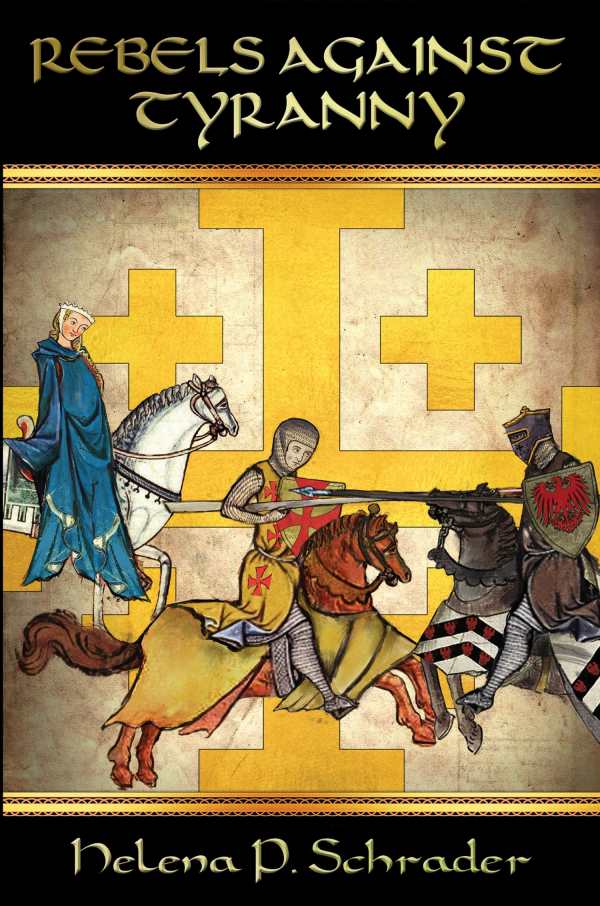Rebels against Tyranny
Civil War in the Crusader States
Rebels Against Tyranny is excellent when it comes to its deep historical details.
Helen P. Schrader’s historical novel, Rebels Against Tyranny, is a feast for the eyes and mind.
The story is set during the heady days of the Sixth Crusade in the 1220s. The pope is fed up with Emperor Frederick II of the Holy Roman Empire, who here is portrayed as a cultured man of Sicily who, despite his German heritage, loathes the German people. He is widely regarded as Europe’s biggest tyrant, and not only causes a civil war, but forges a tentative “peace” in the Holy Land that makes serious enemies out of the fighting Christians of Outremer and Cyprus.
Against this backdrop, squires, Templars, Genoese merchants, and artists navigate the contentious politics of the Roman Catholic world. Mostly set in the Latin Kingdom of Cyprus and the Holy Land, this book uses both real and fictional characters to tell the story of the Sixth Crusade, its aftermath, and the beginning of the fall of the Latin East and Sicily.
Schrader, who has a PhD in History from the University of Hamburg, invokes the medieval world with great aplomb. This book is redolent with the smoke and incense of the High Middle Ages, and its characters think like medieval knights and merchants yet speak in language that is contemporary.
Still, not much happens in this book. This is not to say that the time period and the historical events covered in this book are not fascinating—they are. But the ground it covers seems better suited to a history text than a novel. While characters like Philip de Novare, a historian, jurist, and friend of the Ibelin nobles, and Denise and Cecilia, both of whom have rebellious streaks inside of their Ibelin and di Ferrario households, make for fun reading, the plot is not fleshed out enough to captivate beyond details.
Where this book really shines is in its descriptions of the political battles between Frederick II and his Teutonic Knights on one side, and the pope, House of Ibelin, and the Kingdom of Cyprus on the other. It posits the view that Frederick II created a new type of European leader: the “enlightened” despot. Many European nobles, along with the Vatican, revolted against such despotism, yet Frederick II’s interest in science and his cosmopolitan view of religion would ultimately win the day.
Rebels Against Tyranny is excellent when it comes to its deep historical details, if its story is less developed.
Reviewed by
Benjamin Welton
Disclosure: This article is not an endorsement, but a review. The publisher of this book provided free copies of the book and paid a small fee to have their book reviewed by a professional reviewer. Foreword Reviews and Clarion Reviews make no guarantee that the publisher will receive a positive review. Foreword Magazine, Inc. is disclosing this in accordance with the Federal Trade Commission’s 16 CFR, Part 255.

